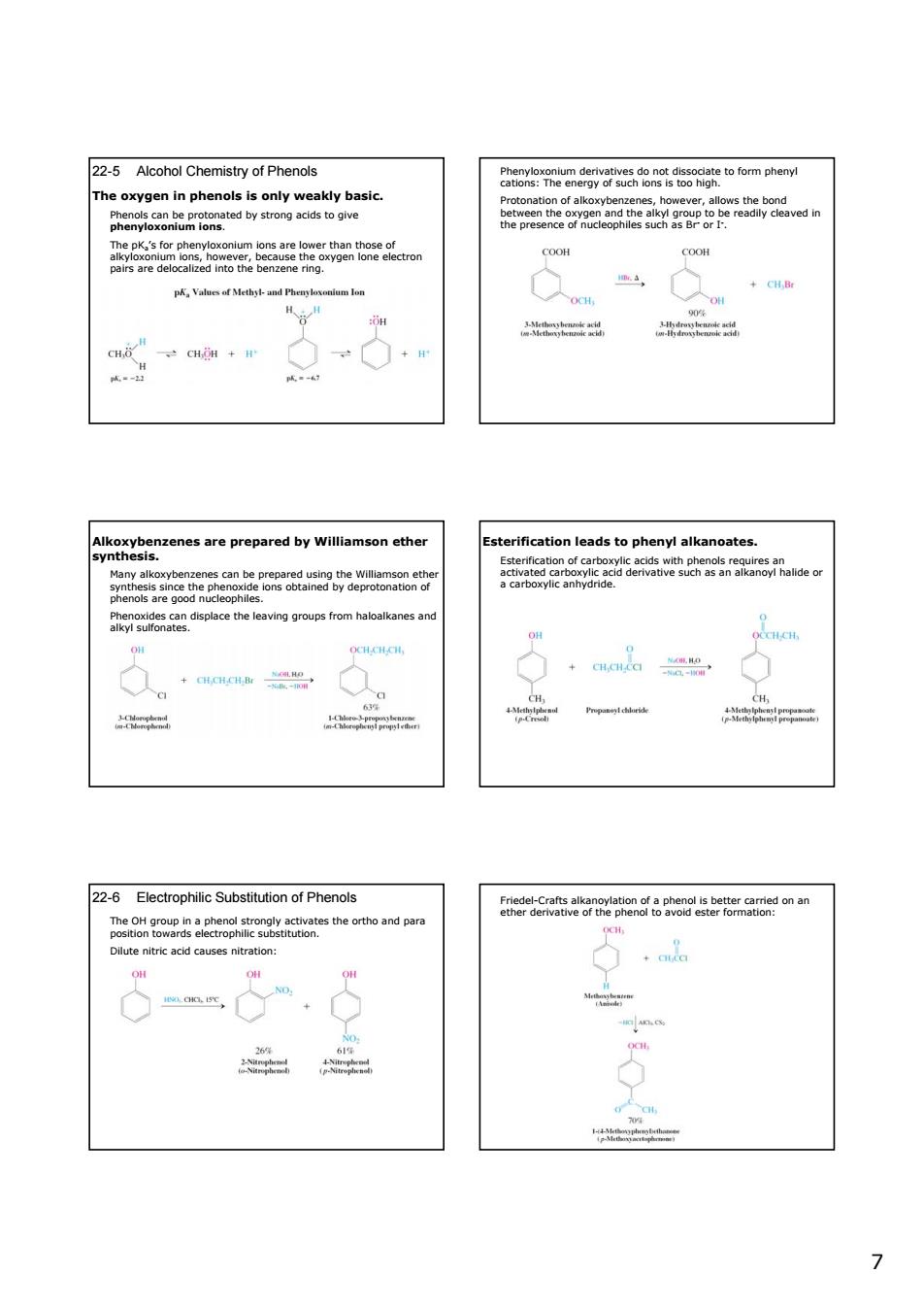正在加载图片...

22-5 Alcohol Chemistry of Phenols war COOH areprepared by Willm ther rification leads to phenyl alkanoates. 22-6 Electrophilic Substitution of Phenols 5ionceaonancfaheaktrt6maoeoman ilute nitric acid causes nitration 77 22-5 Alcohol Chemistry of Phenols The oxygen in phenols is only weakly basic. Phenols can be protonated by strong acids to give phenyloxonium ions. The pKa’s for phenyloxonium ions are lower than those of alkyloxonium ions, however, because the oxygen lone electron pairs are delocalized into the benzene ring. Phenyloxonium derivatives do not dissociate to form phenyl cations: The energy of such ions is too high. Protonation of alkoxybenzenes, however, allows the bond between the oxygen and the alkyl group to be readily cleaved in the presence of nucleophiles such as Br- or I- . Alkoxybenzenes are prepared by Williamson ether synthesis. Many alkoxybenzenes can be prepared using the Williamson ether synthesis since the phenoxide ions obtained by deprotonation of phenols are good nucleophiles. Phenoxides can displace the leaving groups from haloalkanes and alkyl sulfonates. Esterification leads to phenyl alkanoates. Esterification of carboxylic acids with phenols requires an activated carboxylic acid derivative such as an alkanoyl halide or a carboxylic anhydride. 22-6 Electrophilic Substitution of Phenols The OH group in a phenol strongly activates the ortho and para position towards electrophilic substitution. Dilute nitric acid causes nitration: Friedel-Crafts alkanoylation of a phenol is better carried on an ether derivative of the phenol to avoid ester formation: